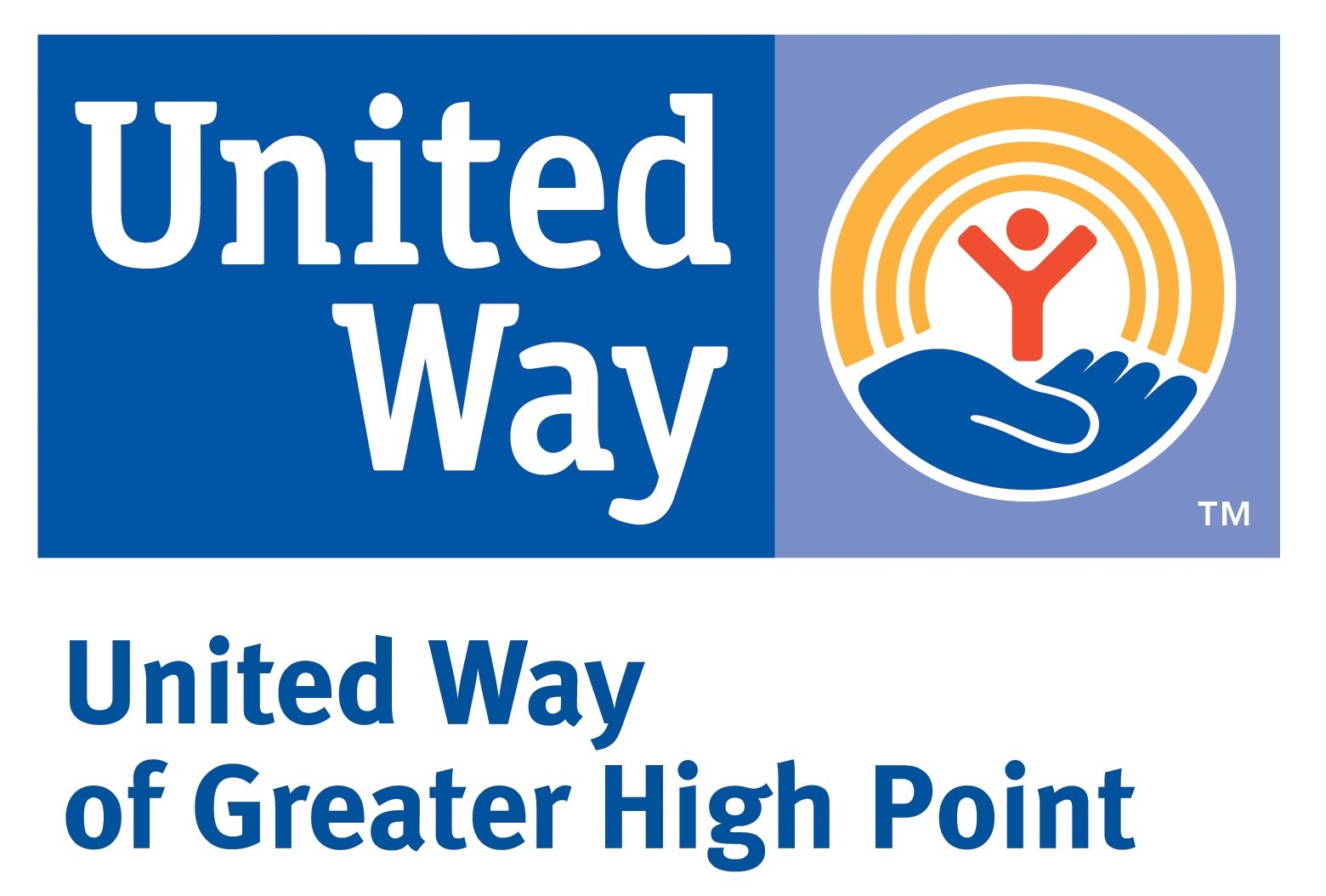YWCA HIGH POINT COMMUNITY BUILDERS
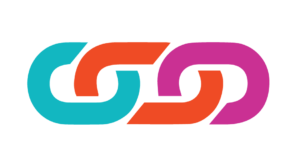
Community Stories: United Way of Greater High Point
High Point University (HPU) AmeriCorps VISTA Gabi Bryce sat down with Latoya Bullock, Vice President of Community Impact at the United Way of High Point, to learn more about antiracist leadership in High Point, as well as Ms. Bullock’s role in developing such leadership.
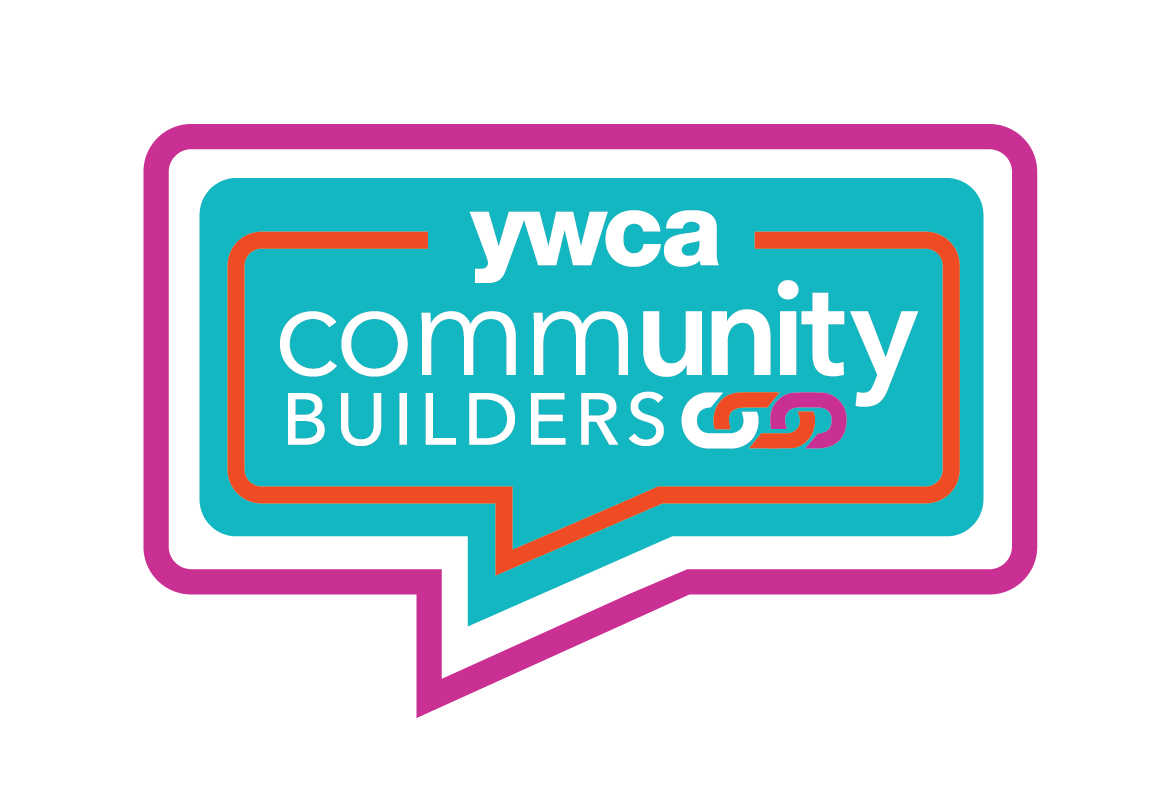
When it comes to mobilizing community philanthropic giving, few organizations compare to the United Way. This is true of the United Way of High Point, who reported dispersing more than $2.5 million to 67 programs at 26 local partner agencies in the 2020 – 2021 year. This funding is distributed with the intention of forwarding education, health, and financial stability for the citizens of High Point.
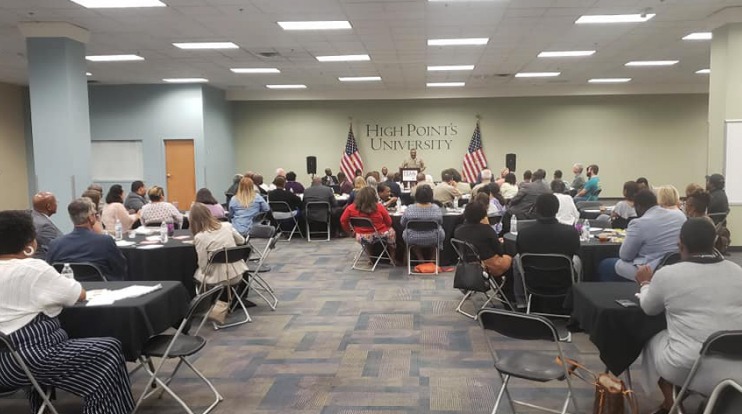
For more than 50% of those citizens, promoting education, health, and financial stability includes furthering antiracist efforts, as more than 50% of High Pointers have a racial identity other than White. Black citizens make up the largest portion of non-White identities, at around 35%, according to 2020 census data. The United Way has formalized its commitment to this, and other non-White populations through the programming of its African American Initiative (AAI).
The African-American Initiative (AAI) of the United Way of Greater High Point is a group of citizens connected to Greater High Point that are working to provide and support opportunities that engage and promote growth and development in Greater High Point’s African-American, other minority, and under-served communities. Membership in AAI is free and open to anyone who supports AAI’s mission. Put less formally, the AAI exists to be a creative space, open for everyone, and primarily intended for Black community members to lead and promote their work. Latoya Bullock, Vice President of Community Impact at the United Way of High Point, speaks about the importance of this program, explaining, “It exists as a way to express voices in this area, and also a space to have leadership in the community that is focusing on issues that are important to people of color.”
Equipping leaders is at the forefront of one of AAI’s most impactful programs, Project Board Development. Like the AAI as a whole, Project Board Development is open to anyone and is a training program to prepare community leaders for board service and connect them to the nonprofit community, empowering them to find organizations that align with their vision, passions, and values. Bullock explains, “We’re ensuring that we do more than train participants. We’re trying to make sure that people are being placed on boards or introduced to local agencies to see that we are being technical and making an impact in the community they will serve.”
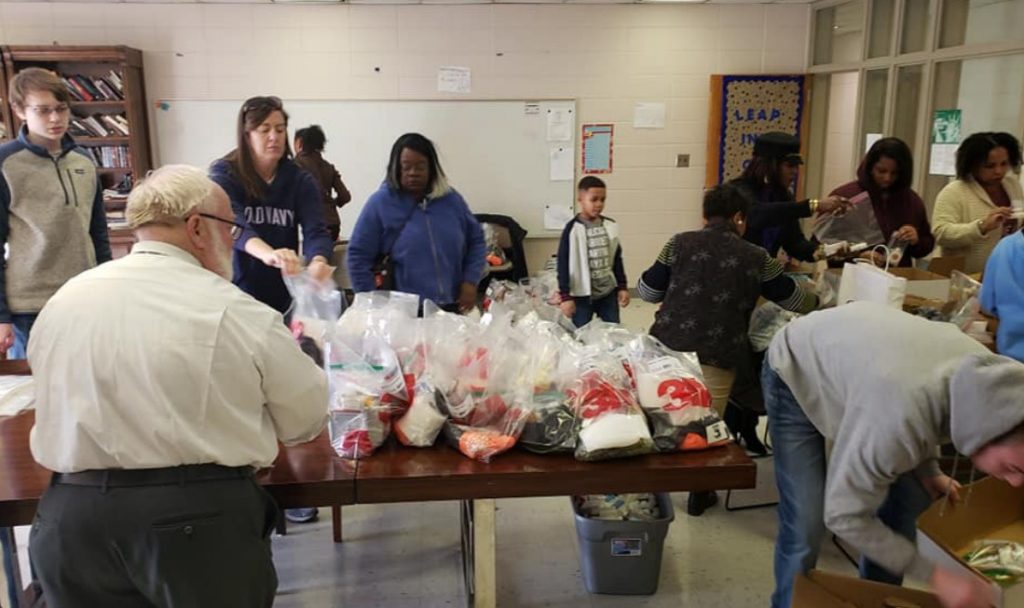
This approach directly addresses the heavily White skew of board membership in our city. According to a 2022 DEI Index, 78% of board members in High Point identify as White, despite making up just under half of the community population. This statistic, combined with the fact that only 15% of nonprofit organizations across Guilford County require DEI training to serve on a board, means that many nonprofit boards lack formal or experiential education around racial dynamics. Beyond a formal requirement, 42% of nonprofits indicate that they are “unsure” of what percentage of board members have been through DEI training, regardless of organizational policy on training. The outcome: many nonprofits in our county, at the board leadership level, may find themselves under-equipped to face challenges presented by emergent and systemic racism.
Bullock feels confident that the AAI exists for the benefit and betterment of the broader High Point community. With its direct name, the bold initiative communicates to partner organizations and others seeking funding that any table set in High Point should have room for everyone.
Beyond the AAI, the United Way of High Point is incorporating antiracist policy into its approach to fund disbursement. Currently, funding from the United Way of High Point is contingent upon a signed agreement stating that the funded partner has no discriminatory practices. Future funding may even be explicitly directed towards intentionally antiracist programs.
Like many nonprofit organizations, Bullock feels that communication is the main challenge preventing AAI from having a more significant impact on the community. An optimistic view of the future drives this forward-thinking program. The promotion of the African American community here in High Point is the promotion of our community as a whole, as High Point would not be the city it is without all the people living here.
Community Stories: United Way of Greater High Point
High Point University (HPU) AmeriCorps VISTA Gabi Bryce sat down with Latoya Bullock, Vice President of Community Impact at the United Way of High Point, to learn more about antiracist leadership in High Point, as well as Ms. Bullock’s role in developing such leadership.

When it comes to mobilizing community philanthropic giving, few organizations compare to the United Way. This is true of the United Way of High Point, who reported dispersing more than $2.5 million to 67 programs at 26 local partner agencies in the 2020 – 2021 year. This funding is distributed with the intention of forwarding education, health, and financial stability for the citizens of High Point.

For more than 50% of those citizens, promoting education, health, and financial stability includes furthering antiracist efforts, as more than 50% of High Pointers have a racial identity other than White. Black citizens make up the largest portion of non-White identities, at around 35%, according to 2020 census data. The United Way has formalized its commitment to this, and other non-White populations through the programming of its African American Initiative (AAI).
The African-American Initiative (AAI) of the United Way of Greater High Point is a group of citizens connected to Greater High Point that are working to provide and support opportunities that engage and promote growth and development in Greater High Point’s African-American, other minority, and under-served communities. Membership in AAI is free and open to anyone who supports AAI’s mission. Put less formally, the AAI exists to be a creative space, open for everyone, and primarily intended for Black community members to lead and promote their work. Latoya Bullock, Vice President of Community Impact at the United Way of High Point, speaks about the importance of this program, explaining, “It exists as a way to express voices in this area, and also a space to have leadership in the community that is focusing on issues that are important to people of color.”
Equipping leaders is at the forefront of one of AAI’s most impactful programs, Project Board Development. Like the AAI as a whole, Project Board Development is open to anyone and is a training program to prepare community leaders for board service and connect them to the nonprofit community, empowering them to find organizations that align with their vision, passions, and values. Bullock explains, “We’re ensuring that we do more than train participants. We’re trying to make sure that people are being placed on boards or introduced to local agencies to see that we are being technical and making an impact in the community they will serve.”

This approach directly addresses the heavily White skew of board membership in our city. According to a 2022 DEI Index, 78% of board members in High Point identify as White, despite making up just under half of the community population. This statistic, combined with the fact that only 15% of nonprofit organizations across Guilford County require DEI training to serve on a board, means that many nonprofit boards lack formal or experiential education around racial dynamics. Beyond a formal requirement, 42% of nonprofits indicate that they are “unsure” of what percentage of board members have been through DEI training, regardless of organizational policy on training. The outcome: many nonprofits in our county, at the board leadership level, may find themselves under-equipped to face challenges presented by emergent and systemic racism.
Bullock feels confident that the AAI exists for the benefit and betterment of the broader High Point community. With its direct name, the bold initiative communicates to partner organizations and others seeking funding that any table set in High Point should have room for everyone.
Beyond the AAI, the United Way of High Point is incorporating antiracist policy into its approach to fund disbursement. Currently, funding from the United Way of High Point is contingent upon a signed agreement stating that the funded partner has no discriminatory practices. Future funding may even be explicitly directed towards intentionally antiracist programs.
Like many nonprofit organizations, Bullock feels that communication is the main challenge preventing AAI from having a more significant impact on the community. An optimistic view of the future drives this forward-thinking program. The promotion of the African American community here in High Point is the promotion of our community as a whole, as High Point would not be the city it is without all the people living here.
YWCA HIGH POINT COMMUNITY BUILDERS

The YWCA has provided opportunities, programs, and support that is specific to my needs.
I’ve never been to an organization that is more accommodating and friendlier than the YWCA of High Point.
Good swimming, good fitness, good friends.
It’s convenient, has a great atmosphere, and a great selection of programs for the amount of pay.
The YWCA is that place that is like a third home to me. The people are super friendly, super welcoming, and super caring. That is what really makes the YWCA a place I love to be.
Everyone I’ve come in contact with at the YWCA is genuinely nice and helpful. They are attentive to my needs and I always feel comfortable at the YWCA.
Along with the calm and pleasant atmosphere, the YWCA’s fitness programs that are offered have improved my overall health.
I only have the highest things to say about the YWCA. The facilities and programs have met the specific needs of my wife and I and the people know us by name. Overall, it has been a great fit for us.
The YWCA is convenient for me and my schedule. They are always consistent in their programs and always hospitable.
I appreciate the reliability and availability of their programs and amenities.



